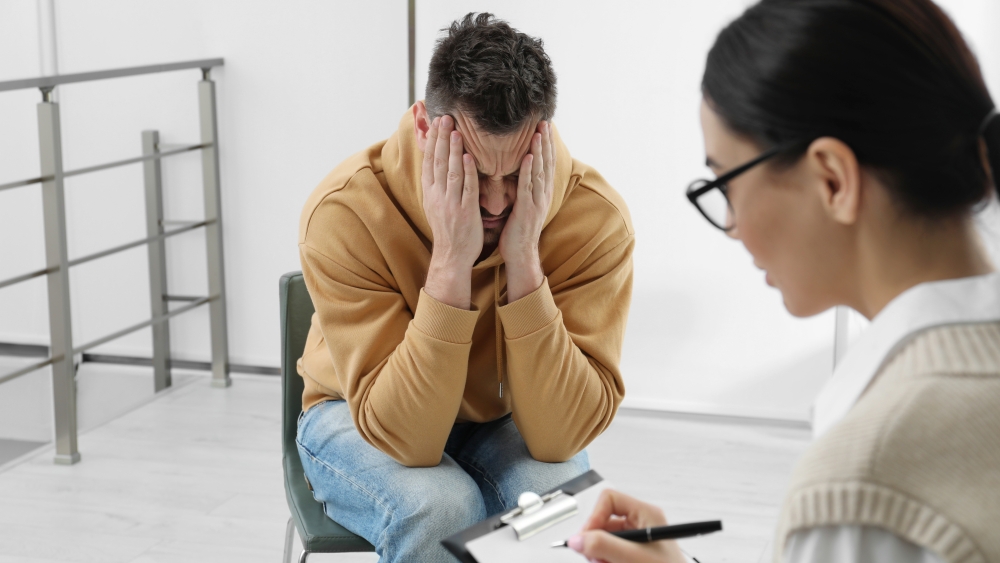
Finding the Right CBT Addiction Therapist
You may have heard of cognitive behavioral treatment, or CBT, if you or someone you care about is having trouble with addiction. It’s one of the best treatments out there, and it’s backed by science. Many people use it to help them stop using drugs and alcohol. But here’s the problem: not every therapist is the same, and not every program teaches CBT in a way that really helps you get well. Moreover, how do you choose the ideal therapist in Calgary? And just as essential, what indicators should you look for to see if a therapist isn’t right for you?
This subject is important because picking the correct therapist is not just about comfort; it might mean the difference between a treatment plan that works and one that keeps you mired in old habits.
Why CBT Matters in Addiction Recovery
Before diving into the practical tips, let’s step back for a moment. Why is CBT so popular in the field of addiction treatment?
CBT looks at how your thoughts, feelings, and actions are linked. Negative thoughts, like “I can’t handle stress without a drink” or “I’ll never be able to stop using,” are often what make people addicted. So, CBT helps you question these thoughts, change how you think about them, and find better ways to deal with them. Also, it’s not about quick solutions; it’s about gaining new skills that will help you for the rest of your life.
Finding a professional CBT therapist in Calgary, where addiction treatments are rising but may often be hard to find your way around, can provide you with an organized, proven way to get better.
Questions to Ask When Looking for a CBT Addiction Therapist
Asking the proper questions is the greatest way to find out if a therapist is right for you. Here are some of the most important ones:
1. What is your training and experience with CBT for addiction?
CBT is a certain way of doing things. Not every therapist who talks about it is an expert in using it to treat substance use disorders. Also, find more about their schooling, credentials, and years of experience working with CBT for addiction.
2. Do you personalize treatment plans?
Addiction looks different for everyone. A good therapist shouldn’t employ a plan that works for everyone. Furthermore, they should be able to tell you how they make CBT work for your individual triggers, problems, and goals.
3. How do you measure progress?
It isn’t always a straight route to get better. A good therapist should explain how they keep track of your progress, whether it’s by self-reporting, standardized examinations, or regular feedback.
4. Do you integrate CBT with other therapies?
CBT is a powerful tool, but it works best when used with other methods, such as mindfulness training or Dialectical Behavior Therapy (DBT). If you have more than one mental health problem at the same time, like anxiety or depression, ask the therapist if they offer a mixed model.
5. What does a normal session look like?
Knowing what’s going on in the room can help you relax. Good therapists should be able to explain how they work. Do they give you homework? Do they utilize sheets of paper? Also, do they act out different situations? This openness helps you know what to expect.
6. What support do you offer outside of sessions?
You don’t stop recovering when you leave the therapist’s office. Ask if they offer resources, ways to deal with problems, or even virtual check-ins between sessions.
Red Flags to Watch Out For
-
They can’t clearly explain what CBT is.
If a therapist can’t explain CBT in basic terms or how it helps with addiction, that can mean they don’t have the knowledge you require.
-
They offer quick fixes or “guarantees.”
It takes time and work to get over an addiction. Anyone who says they can cure you overnight or guarantee you 100% success is not being honest or fair.
-
They don’t ask about your goals.
A strong therapeutic partnership is one that works together. You can feel like simply another number if the therapist doesn’t ask you what you want from rehabilitation.
-
You feel judged or dismissed.
Follow your gut. If you feel ashamed, unheard, or like you’re not important during your first chat, it’s generally not the appropriate fit. The perfect therapist will be both understanding and responsible.
-
They don’t address relapse prevention.
Preventing relapse is a key part of CBT. Also, if your therapist doesn’t bring it up, that’s a big hole in the way they handle you.
How to Know You’ve Found the Right Therapist
You will probably feel both relieved and motivated when you finally locate the proper CBT therapist. A good fit typically feels like this:
- You get new tools to utilize right immediately after each session.
- You feel listened to, respected, and supported.
- Also, you notice changes in how you respond to stress and cravings.
- You can see a clear path forward, even when progress feels slow.
Therapy isn’t always easy; sometimes it pushes you in ways that are hard, but it should always feel like it’s helping you.
Taking the Next Step
Now is the time to take the next step if you really want to start CBT for addiction in Calgary. Lastly, don’t let fear of making the wrong choice or not knowing what to do stop you from pushing forward. You can get better if you have the correct support system in place.
At Ascend Addiction NeuroRecovery, we use therapies that have been proven to work, such as CBT and DBT, along with care that focuses on neuroplasticity to help people make permanent changes. Our team makes individualized treatment plans that deal with the underlying causes of addiction and give you the tools you need to succeed.
Thus, get in touch with us today to find out more about how our CBT programs in Calgary might help you on your way to recovery. True direction is more than medication; it brings about vast change.





